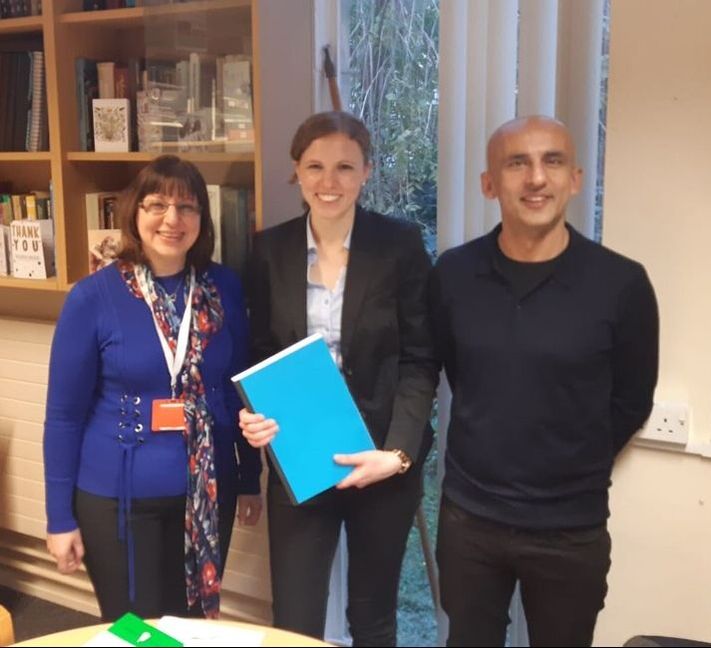| In April 2016, the PEARRL project started with the aim of recruiting 15 Early Stage Researchers (ESR) to achieve the project’s ambitious research objectives to deliver novel bio-enabling formulations and new biopharmaceutics tools to predict their in vivo performance in drug development. The ESRs each worked on individual research projects within PEARRL and simultaneously received complementary, interdisciplinary and multi-sectorial training to enhance the their technological and transferable skills. The main aim is to ensure high employability by forming them as well-rounded experts in the field of drug development and supporting them throughout their doctoral research and training programme. Three and a half years on the PEARRL project is happy to announce that the first PEARRL ESR has received her PhD. We would like to congratulate Angela Effinger on successfully defending her PhD and passing her viva. We held a short interview with Angela to find out more about her research and her experience within the PEARRL project. |
- What has your research project focused on and what are your key results and innovations coming from your research project?
My research project focused on the differences of drug product performance in patients with gastrointestinal diseases compared to healthy subjects and how these differences can be predicted using in vitro and in silico tools.
In terms of in vitro tools, we developed biorelevant media for patients with Crohn’s disease, Ulcerative Colitis and Coeliac disease, which can be used as risk assessment tool to identify drugs at high risk of altered drug solubility in the gastrointestinal fluids of these patients compared to healthy subjects. Additionally, we developed an in vitro dissolution methodology representative of patients with Crohn’s disease to investigate drug release in these patients.
Considering in silico tools, we used PBPK modeling in combination with our in vitro dissolution tests to predict the drug product performance of budesonide in patients with Crohn’s disease. This approach helps to identify the key pathophysiological differences impacting on drug product performance and can be extended to other drugs and formulations. - What impact does your research project and your outcomes have?
In drug development, the in vitro and in silico tools can be used to identify the risk of an altered drug product performance in patients with gastrointestinal diseases and to identify the root cause of these difference. This could then guide formulation development and prescribers to decide if different drug formulations or dose adjustments are necessary and ultimately help the patients with gastrointestinal diseases. - What were your personal highlights over the course of your research project?
My personal highlights were all three PEARRLS of Wisdom Weeks, which were great in terms of training and networking activities. I also enjoyed a lot the industrial secondment at Pfizer, where I had the opportunity to work with the dynamic gastrointestinal simulator TIM-1 (TNO) and to use various analytical techniques. Another highlight was the regulatory secondment at the MHRA with insights into all different departments of the agency. - Are there any elements of the training you received that you find should be integrated in local doctoral programmes?
In the beginning of the PhD, I benefited from the courses of the Transferable & Generic skills training workshops during the first PEARRL POWW. This training on scientific writing, publishing and the PEER review process would in my opinion be helpful for all PhD students. For me, it was also great to have training on regulatory aspects of drug development and I think this would be beneficial for all PhD students in pharmacy. - How did the PEARRL network impact your doctoral experience?
In PEARRL, I was part of a great international network of highly motivated scientists. For my PhD, this meant that I had great support and possibilities to address my research questions. Additionally, I expanded my knowledge in different research areas, got insights into the work of regulatory agencies and the pharmaceutical industry, had the possibility to present my research at several international conferences, learned a lot about other cultures and made new friends. - What are your plans for the future?
As a next step, I want to further pursue the PBPK modeling in the pharmaceutical industry.


 RSS Feed
RSS Feed
